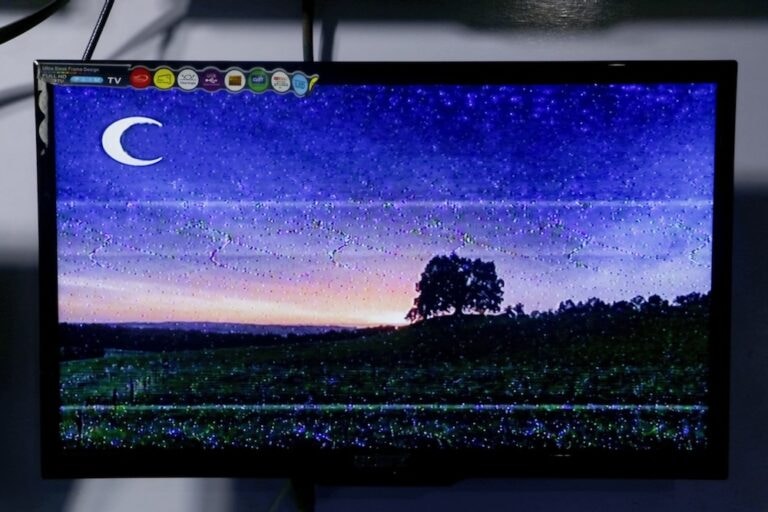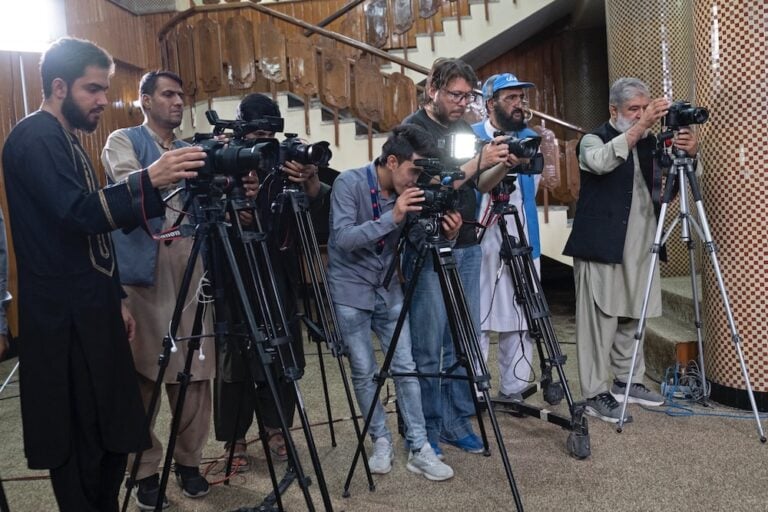Afghan leaders called for the release of journalists held hostage during RSF's recent mission to the country.
(RSF/IFEX) – 7 June 2010 – As Afghanistan embarks on what could be a long peace process, senior Afghan representatives have called for the release of journalists held hostage and for more respect for the freedom and safety of media personnel.
Senate speaker Sibghatullah Mojaddedi (who heads the National Commission for Peace), Information and Culture Minister Makhdom Raheen, Council of Ulemas spokesman Fazel Ahamad Manawi and Afghanistan’s journalists’ associations are all calling for the release of the foreign and Afghan journalists held hostage. At least three foreign reporters (two of them French, one of them Japanese) and their Afghan assistants are currently being held by insurgents.
A Reporters Without Borders delegation led by the organisation’s president, Dominique Gerbaud, visited Kabul from 15 to 20 May, meeting with government officials and journalists and the French officials who are seeking the release of the France 3 TV crew that has been held in the province of Kapisa since last December.
“There is now an urgent need to create the conditions for the release of the journalists,” Reporters Without Borders said. “The peace Jirga’s creation of a commission to examine the release of prisoners is an encouraging development. We appeal to the kidnappers to heed the calls for a rapid, negotiated outcome to these hostage situations, which have gone on too long.”
In agreement with Afghan journalists’ organisations, Reporters Without Borders appeals to the Afghan media, civil society, government and religious institutions to take action to put an end to the violence that is making it more and more difficult for both Afghan and foreign journalists to operate.
“Journalists are not soldiers or mercenaries,” Reporters Without Borders added. “They are media workers who have both the right to be protected and the duty to report the news as objectively as possible.”
When the Reporters Without Borders delegation was received by senate speaker Mojaddedi, a former president, he condemned the taking of hostages. “Such actions are contrary to Islam and humanity,” he said. “I am in favour of the unconditional release of the hostages and I ask all those in positions of responsibility to do everything they can to obtain it. I am in favour of prisoner exchanges. During the jihad period, we often carried out such exchanges.”
Council of Ulemas spokesman Manawi said: “The Council of Ulemas, as a moral authority, supports an appeal to all parties in the conflict to respect the safety of journalists and, above all, to release all hostages.” He added: “A negotiated solution must be accompanied by practical measures to combat poverty, unemployment and corruption, the underlying causes of these problems.”
Describing the current situation as “alarming,” Information and Culture Minister Raheen assured the Reporters Without Borders representatives that the authorities were doing everything possible to obtain the release of the hostages.
“Our ministry is totally committed to helping these journalists but, as you know, hostage-taking affects everyone and our ambassador in Pakistan has been kidnapped for more than a year,” he said. “But, as for the journalists who are hostages, I can tell you both personally and on behalf of the government that we are doing all we can to get them freed.”
(. . .)


